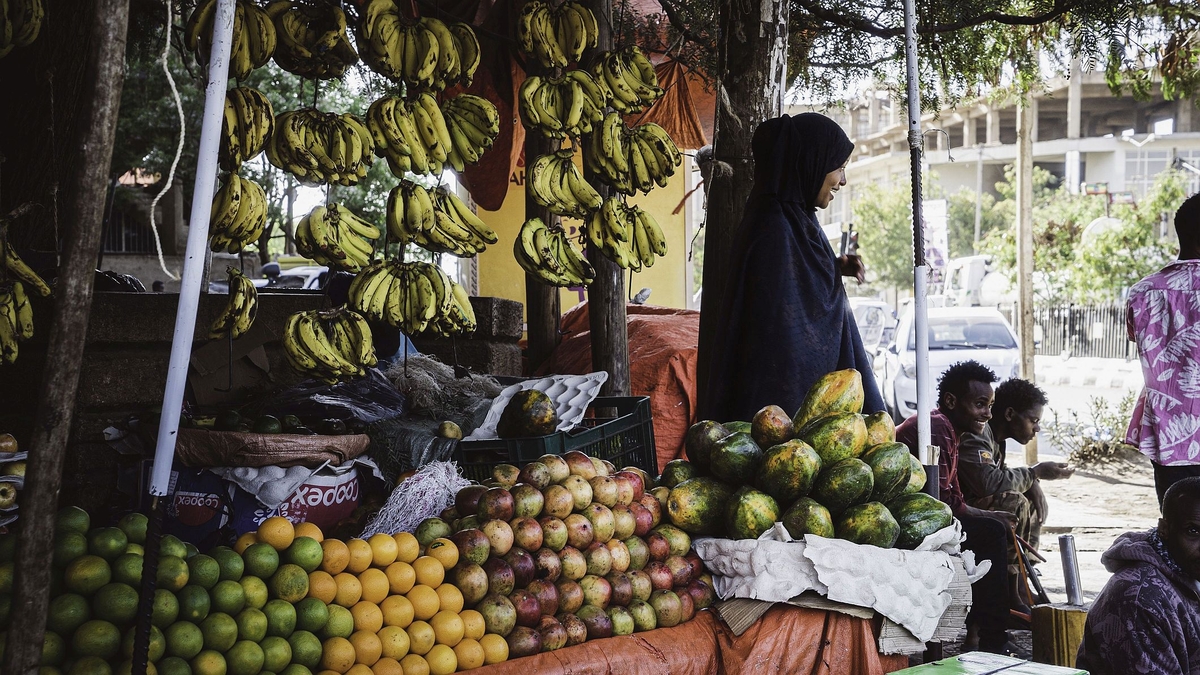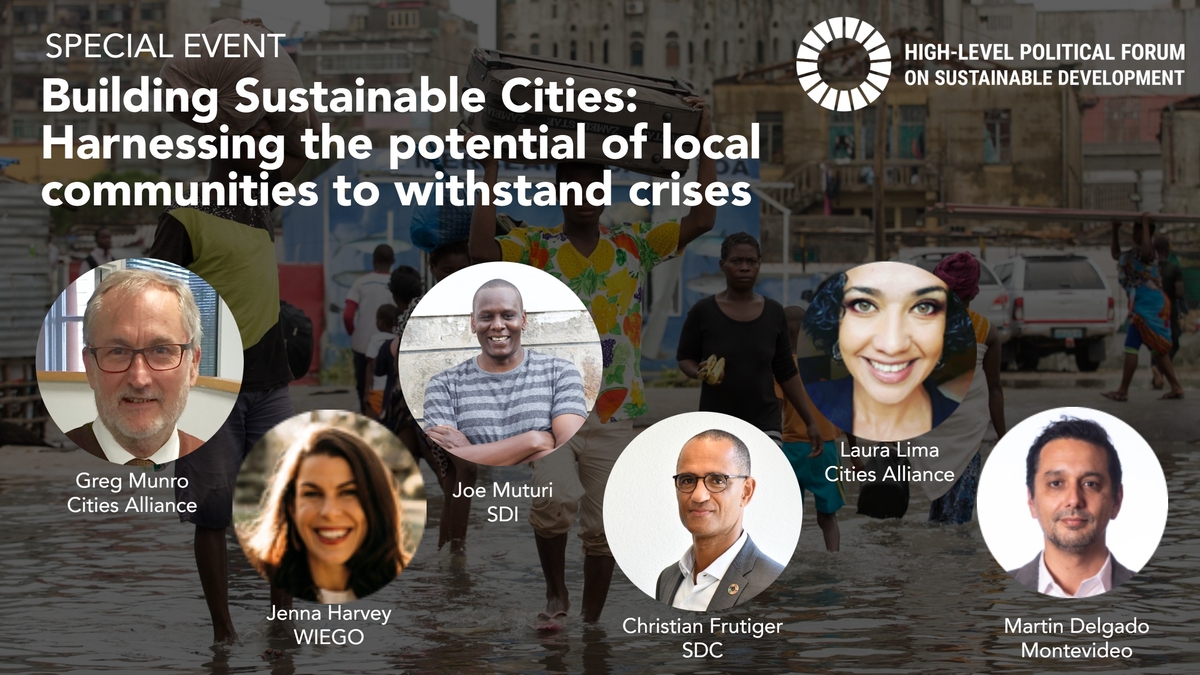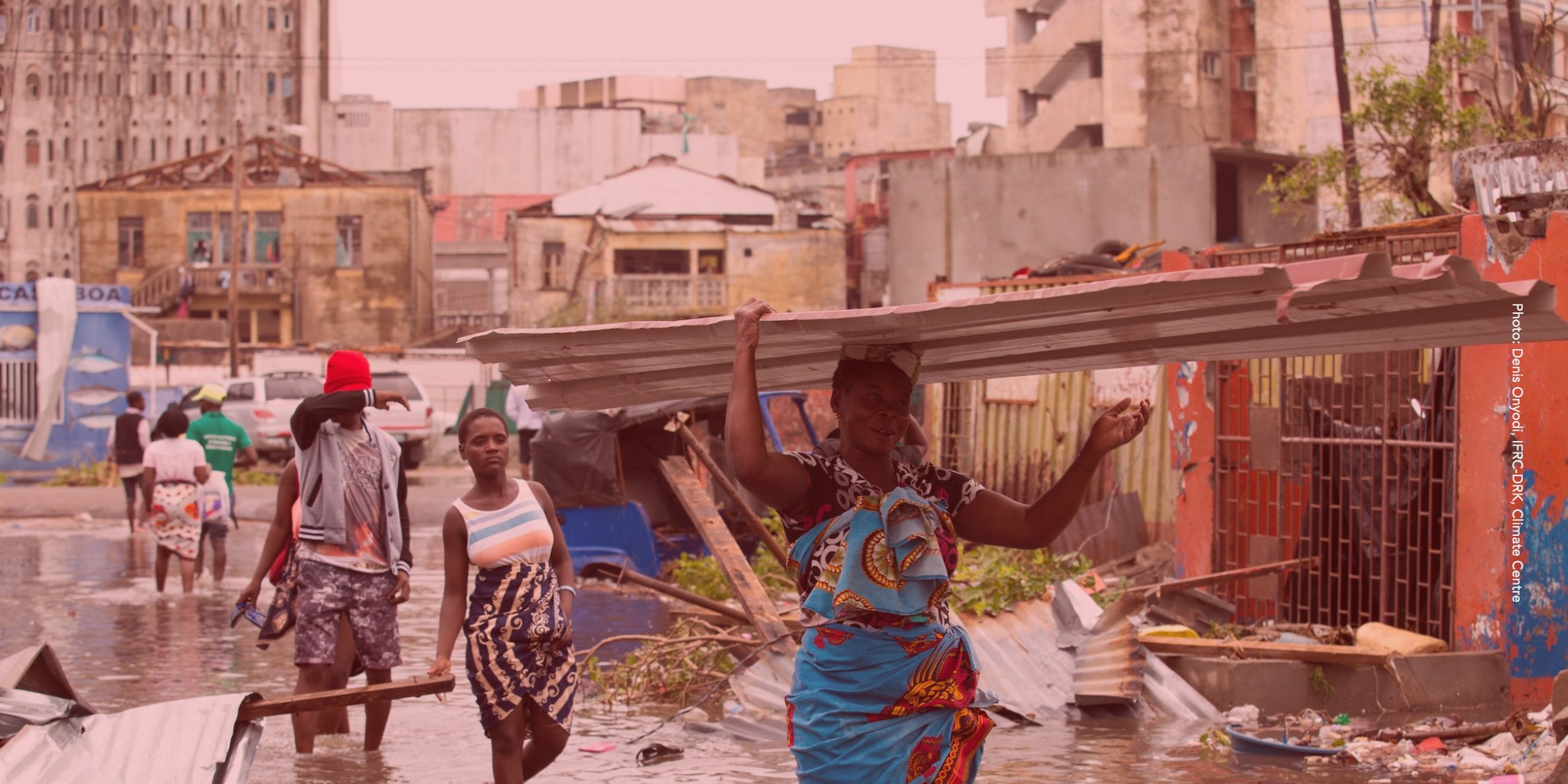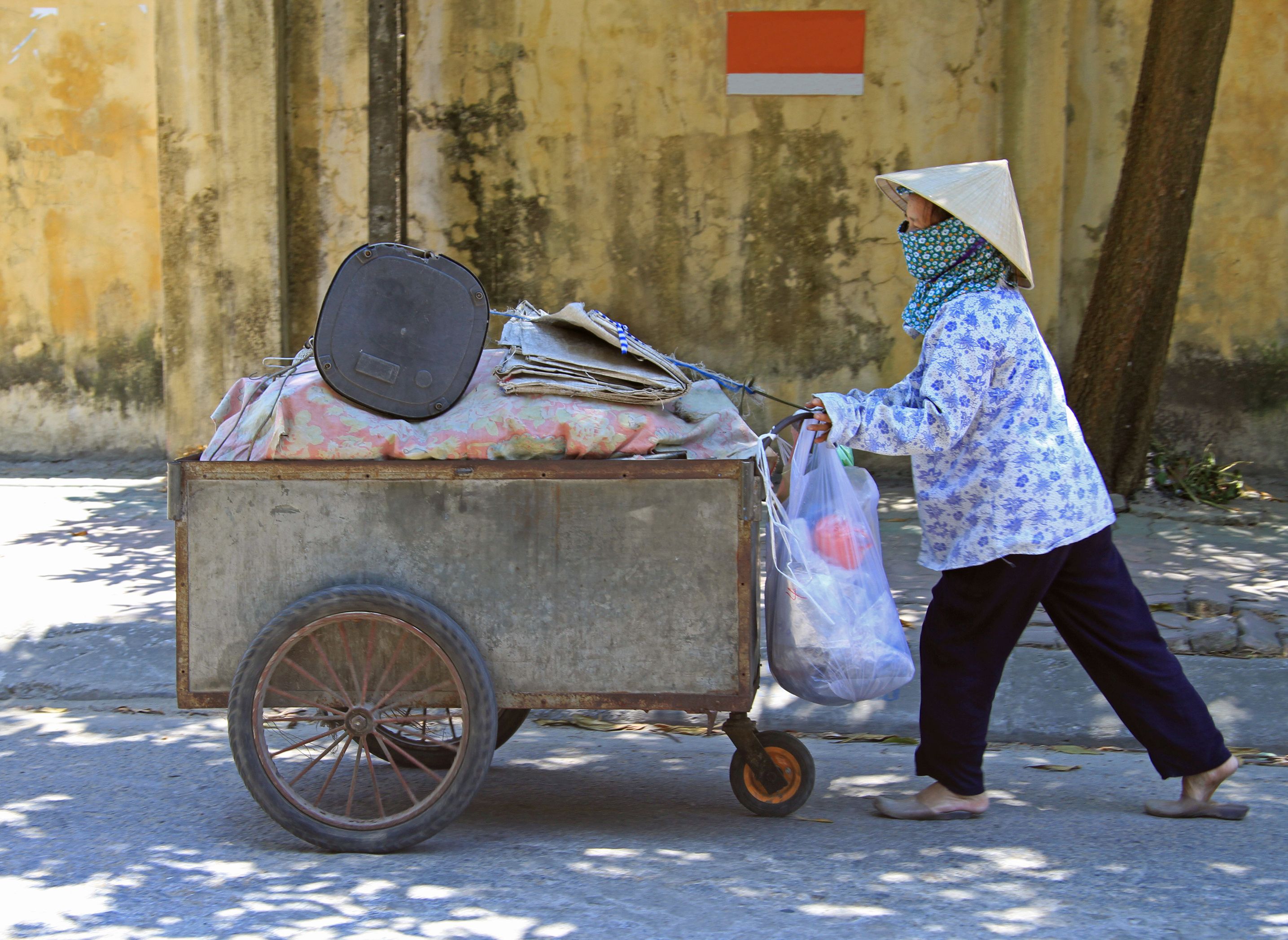The COVID-19 pandemic has dominated crisis responses for the past three years, yet cities confront a range of ongoing challenges such as displacement, climate change impacts, violence, food scarcity, pollution, governance issues, and disease. Simultaneously, cities, particularly their vulnerable communities, are pivotal in fostering resilience and inclusive development. The central query lies in how to empower urban communities to weather crises and enhance residents' lives.
Cities Alliance explored this subject during a learning session at the UN High-level Political Forum on Sustainable Development (HLPF) on 12 July. The panel, moderated by Cities Alliance, featured diverse perspectives: the Swiss Agency for Development and Cooperation (SDC) represented donors, the city of Montevideo, Uruguay represented local authorities, and Slum Dwellers International (SDI) and Women in Informal Employment: Globalizing and Organizing (WIEGO) voiced the civil society's stance.
Partnerships emerged as a resounding theme, acknowledged as pivotal for fostering inclusivity and orchestrating effective crisis responses. ‘If donors can support initiatives that create these partnerships that build on existing capacities, that can build and leverage longstanding partnerships at the local level, we may have contributed to a city that is stronger when facing the next crisis’, said Ambassador Christian Frutiger of SDC.
He also underscored the potential of cities as powerful catalysts for progress and resilience.
Cities have the resources, and bear within themselves the possibility to be powerful harbours of resilience in times of crisis.
Amb. Christian Frutiger, Vice-Director General and Head of Thematic Cooperation, SDC
Jenna Harvey, WIEGO's Global Focal Cities Coordinator advocated for recognizing the intrinsic value of informal work, highlighting the roles of street vendors and waste pickers in food security and recycling. 'Informal workers already have innovative proposals for alternatives to the status quo of planning in cities, for example through recognising natural markets where street vendors work, integrating waste pickers into solid waste management systems as service providers', she said.
Martin Delgado, representing the city of Montevideo, Uruguay, shared how his city has partnered with communities on service provision projects that are inclusive and strengthen trust. He gave the example of the mesas barriales (neighbourhood roundtables), a platform to engaged all residents to define a collective agenda of priorities and address complex demands. To enable women to participate, the meetings were scheduled at suitable times and provided space for childcare.
By prioritising the wellbeing of all residents, respecting, and revitalising nature, and incorporating principles of solidary into our government and systems, we can foster inclusive development.
Martin Delgado, Director of Urban Development, city of Montevideo
Placing the communities at the centre of development
SDI Chair Joseph Muturi stressed that obtaining accurate data on informal settlements is invaluable in building partnerships, negotiating with local and national governments, and implementing crisis interventions.
Muturi noted that the data collected by SDI is often the only available source of information on informal settlements. This was critical during the COVID pandemic when local governments sought to implement interventions to reduce the spread of disease but lacked the necessary information. For example, in Nairobi, SDI worked with community volunteer health workers in the settlements and with the government to map out COVID hotspots. It also provided data to organisations seeking to support the urban poor with emergency aid such as cash transfers.
The most vulnerable residents also use the information to mobilise and support each other. A recent WIEGO report found that during COVID, it was the membership-based organisations of informal workers that stepped in to fill the gap and provide a crisis response that was much more efficient and comprehensive than governments. In some cases, they were the only source of relief for informal workers, providing reliable information about the virus, material relief, food, and cash.
If the urban poor are affected by urban crises, they are also a drivers of innovation. We must allow them to become agents of their own progress.
Laura Lima, Head of Programmes, Cities Alliance
What can governments do?
Cities play an important role in addressing crises, and their needs must be heard at the global level. This is a priority for Switzerland, which is a strong supporter of including the voices of cities at national, regional, and global platforms so their needs can feed into international solutions.
“Cities have emerged as central actors and visionary leaders in delivering solutions to migration. They provide a critical perspective that was largely missing in any international deliberations, but that is vital for the realisation of the 2030 Agenda and reaching the SDGs,” Ambassador Frutiger said.

Cities should also provide space for meaningful dialogue with communities, which is the first step in building trust and partnerships.
“The most important recommendation is the need for institutionalised dialogue spaces between informal worker organisations and their governments. Mutually beneficial solutions that harness all this expertise that informal worker leaders hold are only possible when they are engaged in dialogue on fair and meaningful terms, not tokenistic spaces,” said WIEGO's Jenna Harvey.
Cities Alliance Director Greg Munro also encouraged local governments to look at their cities in terms of caring and inclusion. He noted that United Cities and Local Governments (UCLG) has embarked on a political process that places a pact with the community at its centre.
'If we can get our local councils and our local leaders and our local politicians to understand that this is about inclusion in all its forms, we’ve made the first big step ahead,' he concluded.
Watch the session on UN web TV (video starts at 21:41)






